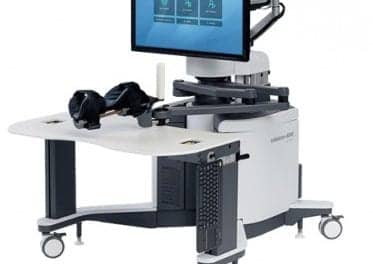Potentially preventable interruptions to inpatient rehabilitation are a clear target area for efforts to improve rehabilitation care, concludes a recent study.
These interruptions to inpatient rehabilitative therapy after a stroke, brain injury, or spinal cord injury—such as a rehospitalization for treatment of complications—occur at a significant rate. However, at least 10% of these interruptions are potentially preventable, according to the study, published recently in the American Journal of Physical Medicine & Rehabilitation, the official journal of the Association of Academic Physiatrists, published by Wolters Kluwer.
In the study, Addie Middleton, PhD, DPT, and colleagues of University of Texas Medical Branch, Galveston, analyzed Medicare data on patients undergoing inpatient rehabilitation for one of three neurological conditions: about 72,000 patients with stroke, 7,100 with traumatic brain injury, and 660 with spinal cord injury (SCI). All were admitted to rehab directly from the hospital, according to a media release from Wolters Kluwer Health: Lippincott Williams and Wilkins.
The study focused on two types of interruptions, indicating that the patient’s rehabilitation therapy wasn’t completed as planned: program interruptions, defined as being transferred to another facility, then back to the rehab center within 3 days; and short-stay transfers, defined as being transferred to a hospital or other facility before the expected length of stay at the rehab center.
The researchers note in the release that program interruptions occurred in about 1% of patients: 0.9% of those with stroke, 0.8% with brain injury, and 1.4% with SCI. In nearly all of these cases, the patient was transferred to an acute care hospital, usually because of some type of complication.
Short-stay transfers occurred in about 22% of patients with stroke or brain injury, and nearly 32% of those with SCI. About one-third of these patients were also transferred back to acute care hospitals. (Others were transferred to skilled nursing facilities.)
Based on their findings, the researchers suggest that about 11% or 12% of these interruptions could be classified as “potentially preventable.”
Of the short-term transfers, about 15% were potentially preventable in the patients with stroke, 10% with brain injury, and 4% with SCI. Such preventable causes of short-term transfers include dehydration, heart failure, pneumonia, and urinary tract infections, the release continues.
In light of these findings, Middleton and coauthors write that, “Inpatient rehabilitation facilities are performing well in preventing complications. However, given that more than one in ten of the rehospitalized patients returned to acute care for a potentially avoidable condition, there is still room for improvement.”
“Reducing rates of program interruptions and short-stay transfers will not just improve patient experiences of care, they will likely also translate to lower Medicare spending per beneficiary,” they conclude.
[Source(s): Wolters Kluwer Health: Lippincott Williams and Wilkins, Science Daily]





